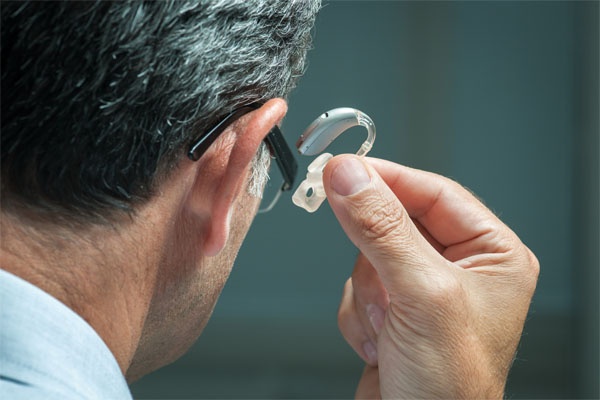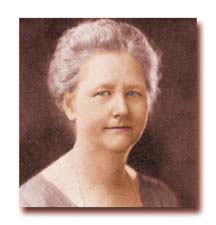At Cleveland Hearing & Speech Center (CHSC), we believe everyone deserves access to the resources they need to connect, learn, and belong. August is known as National Make a Will Month, which offers a special opportunity to ensure that commitment continues long into the future.
Creating a Future of Communication Access for All: How Your Will Can Build a More Inclusive Tomorrow
Tags: Communication, Communication Access, Donations, Donors, planned giving, Wills
Augmentative and Alternative Communication (AAC) for Adults
Tags: Speech, Language, Communication, Support, Stroke, Caregiving, Brain Injury, talking, Communication Access, Speech therapy, Stroke recovery, Aphasia, Primary Progressive Aphasia
Aphasia or Primary Progressive Aphasia?
Aphasia is a language disorder resulting from an injury to the brain, such as a stroke or head trauma. The outcome of aphasia varies significantly from person to person. The most predictive indicator of long-term recovery is initial aphasia severity, along with the lesion site (location of damage to the brain) and the size of the lesion
Tags: Language, Communication, Stroke, Caregiving, Brain Injury, talking, Communication Access, Speech therapy, Stroke recovery, Aphasia, Primary Progressive Aphasia
Supported Conversations for Adults with Aphasia (SCA)
If you know someone who is recovering from a stroke or other acquired brain injury, you may have experienced a heightened level of difficulty when participating in conversations. Aphasia, or language difficulties as a result of a stroke, can impact a person’s ability to express themselves or understand information. This breakdown in communication can lead to feelings of isolation and distress.
Tags: Speech, Language, Communication, Support, Stroke, Caregiving, talking, Communication Access, Speech therapy, Stroke recovery, Aphasia
Over-the-Counter Hearing Aids - What You Should Know
The announcement by the Food and Drug Administration finalizing the ruling that allows for Over-the-Counter (OTC) hearing aid sales is good news for increased access to hearing health care. It will provide increased access to hearing aids for adults (ages 18 and older) who have mild to moderate hearing loss. This can be an initial step to the acceptance and treatment of hearing loss, much like reading glasses for eyesight. OTC hearing aids are not appropriate for children or those with moderate to severe or profound hearing loss.
As an agency with a 101-year history of providing access to hearing health care for all people including marginalized and vulnerable populations, Cleveland Hearing & Speech Center (CHSC) believes this is a step in the right direction for a more global acceptance of the treatment of hearing loss and with Baby Boomers hitting retirement ages, it could not be timelier.
However, at CHSC, we encourage people to undergo an audiologic evaluation (hearing test) before purchasing any hearing aids. A proper diagnosis of the degree of hearing loss results in a more accurately programmed hearing aid – much like a proper prescription for glasses. A hearing evaluation will also identify any underlying medical conditions that may be causing the hearing loss.
CHSC's commitment to hearing health will continue into the next century. We will continue to provide professional audiology services to those who purchase their hearing aids – now including OTC aids - but may find they need additional support.
In addition, CHSC will continue to provide our full range of hearing aid services for all degrees of hearing loss and all ages. Low-cost and no-cost options for hearing aids may include health insurance with hearing aid benefits such as some Medicare Advantage plans, Medicaid, and our Audiology Patient Assistance Program (APA).
Tags: Hearing Aid, Audiology, Hearing Aids, Hearing, Hearing Loss Prevention, Hard of Hearing, Hearing Loss, "ears", Communication Access, Medicare
Stroke Recovery: Communication Tips for People with Aphasia
Take your time when speaking. Speak at your own pace. Even if your communication partner is speaking quickly, set your pace and take your time. Your message is important and deserves to be heard.
Tags: Speech, Language, Communication, Support, Stroke, Caregiving, Brain Injury, talking, Communication Access, Speech therapy, Stroke recovery
Brain Injury Awareness and Recovery
In 2022, Brain Injury Awareness Month highlights #MoreThanMyBrainInjury by bringing awareness to some brain injury facts and statistics from the Brain Injury Association of America (BIAA).
Tags: Speech, Language, Communication, Brain Injury, talking, Communication Access, Speech therapy, Stroke recovery
Baby Sign Language Improves Communication
Infant sign language really does deliver on its promise of improved communication. This is particularly appealing for new parents, given that there’s a well-recognized gap between what babies and toddlers want to say and what they are able to say. Sign language can help ease frustration between ages 8 months and 2 years — when children begin to know what they want, need, and feel but don't always have the oral motor verbal skills to express themselves. Basic sign language can help babies better express themselves as early as 8 or 9 months and it can mean decreased frustration (for both caregiver and child), promote earlier language skills and enhanced bonding with those who sign.
Tags: Speech, Language, Communication, American Sign Language, ASL, Learning, toddler, talking, Early Intervention, Communication Access, Baby Sign Language
Inspiration: A Century of Service at Cleveland Hearing & Speech Center
2021: A Century of Serving Northeast Ohio!
I couldn’t be prouder to lead an organization with a legacy and mission that have stood the test of time. Looking back, there is so much about our story that inspires me. This will be the first in a series of reflections to bring you along on the century-long journey of Cleveland Hearing and Speech Center (CHSC). As you read along, I hope you will share in my sense of awe and wonder as we embark on our second century of serving Northeast Ohio.
Tags: Hearing Aid, Audiology, Language, Hearing Aids, Communication, Hearing, Hearing Loss Prevention, Deaf, Hard of Hearing, Hearing Loss, Cochlear Implants, Deafness, Early Intervention, Communication Access
















